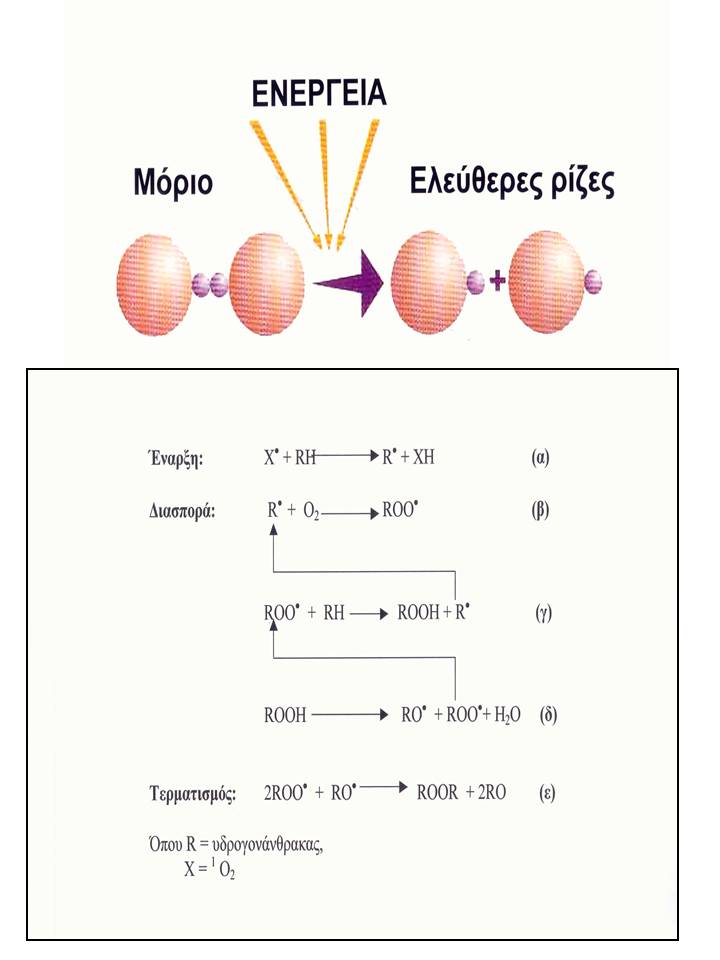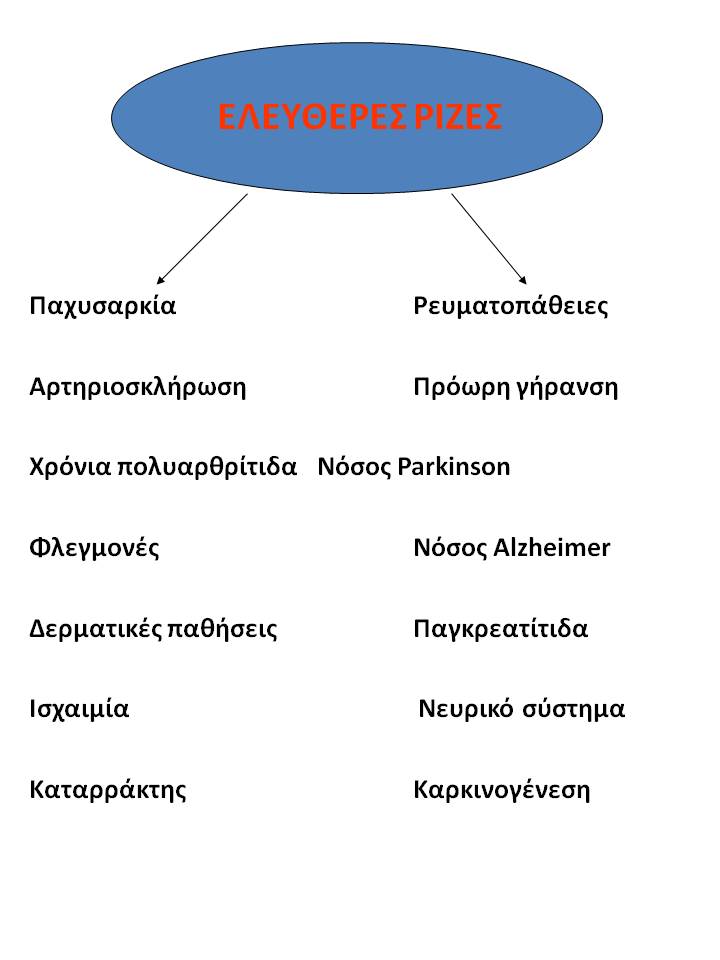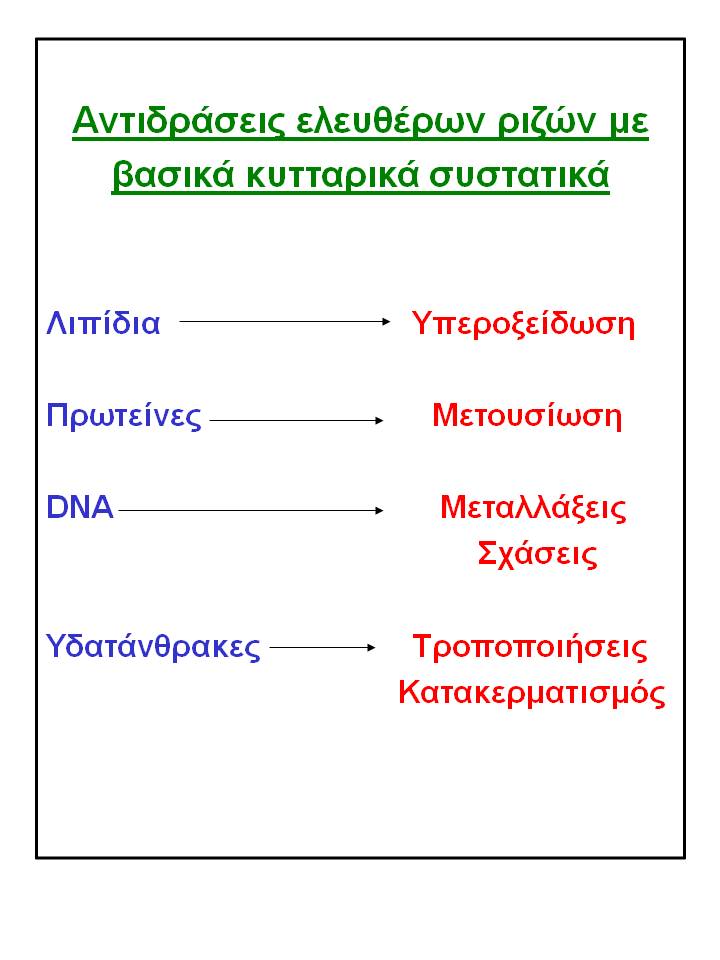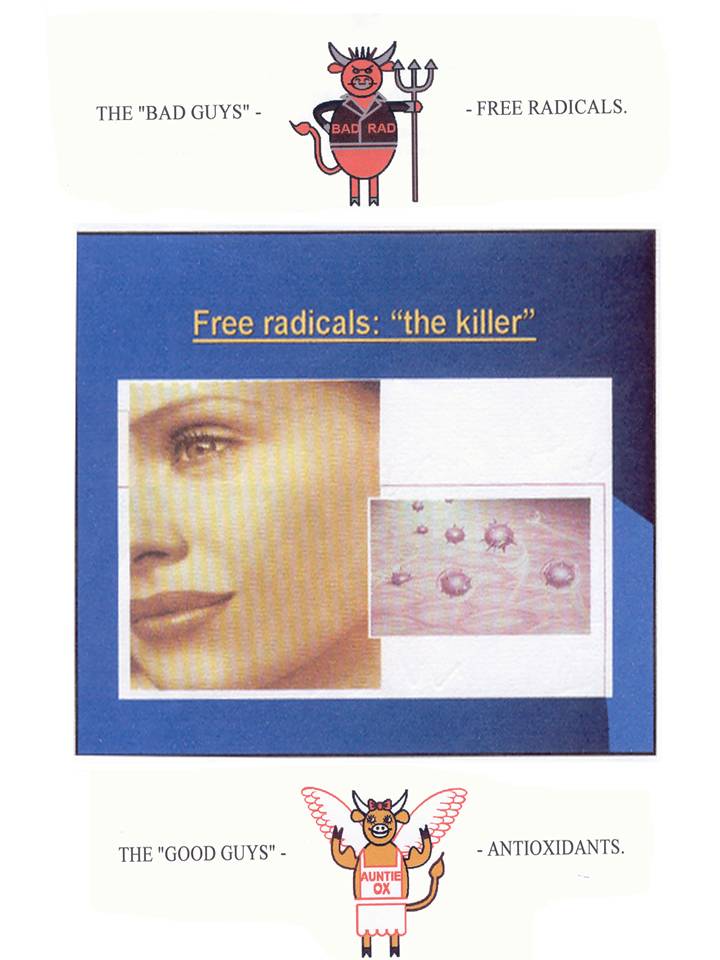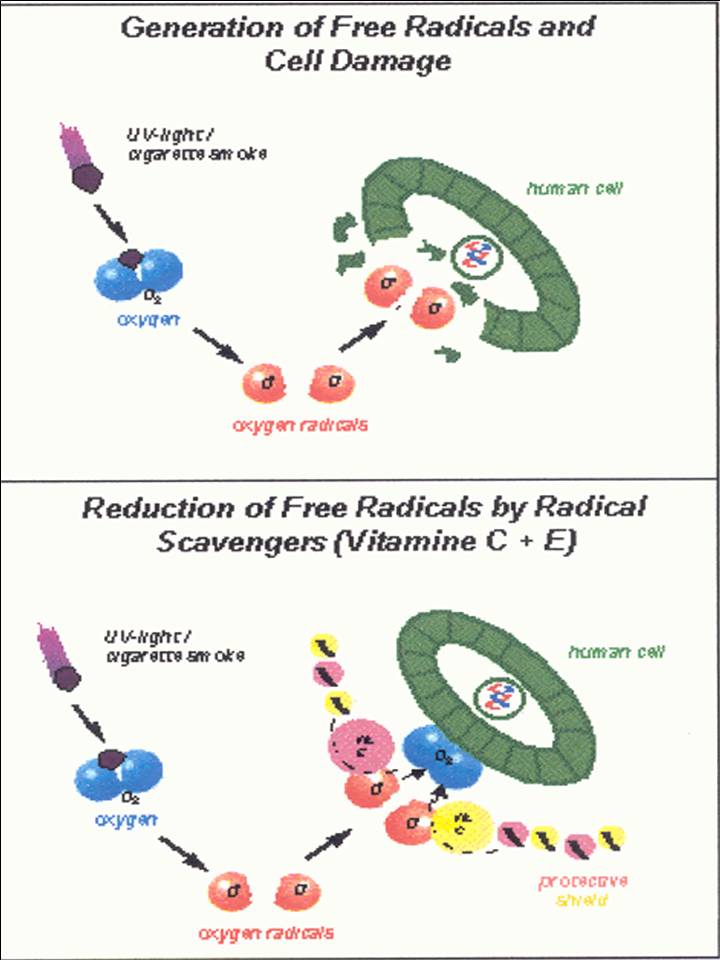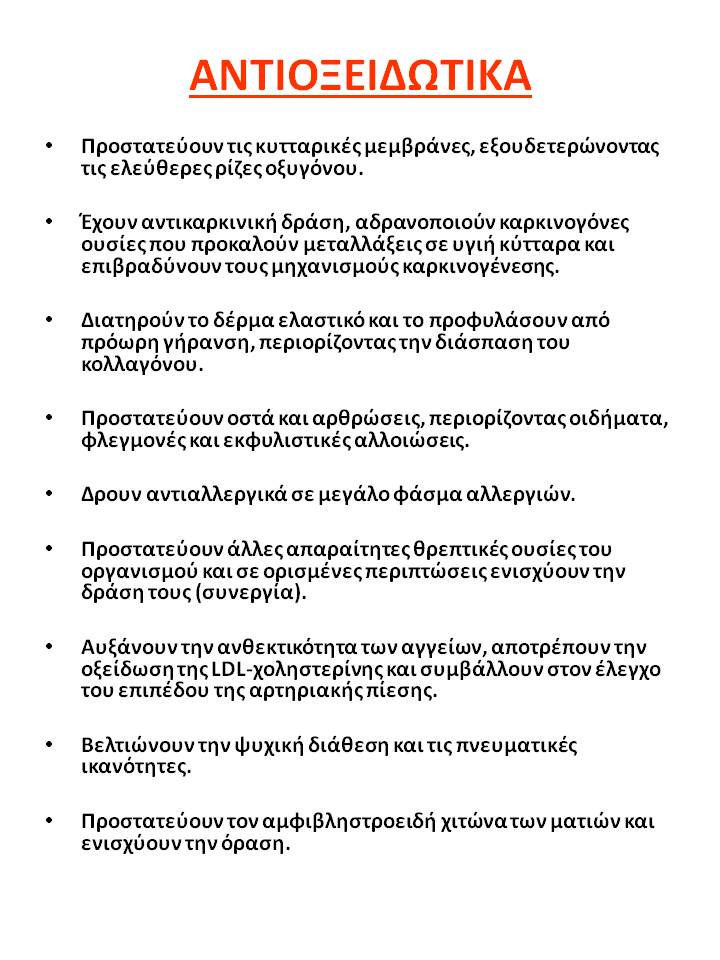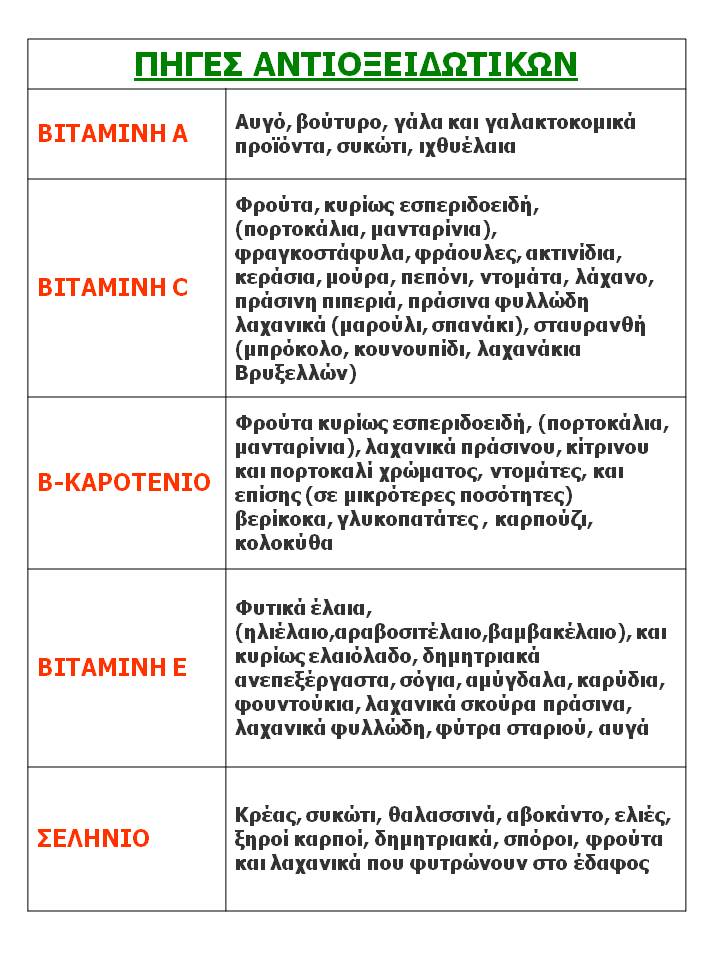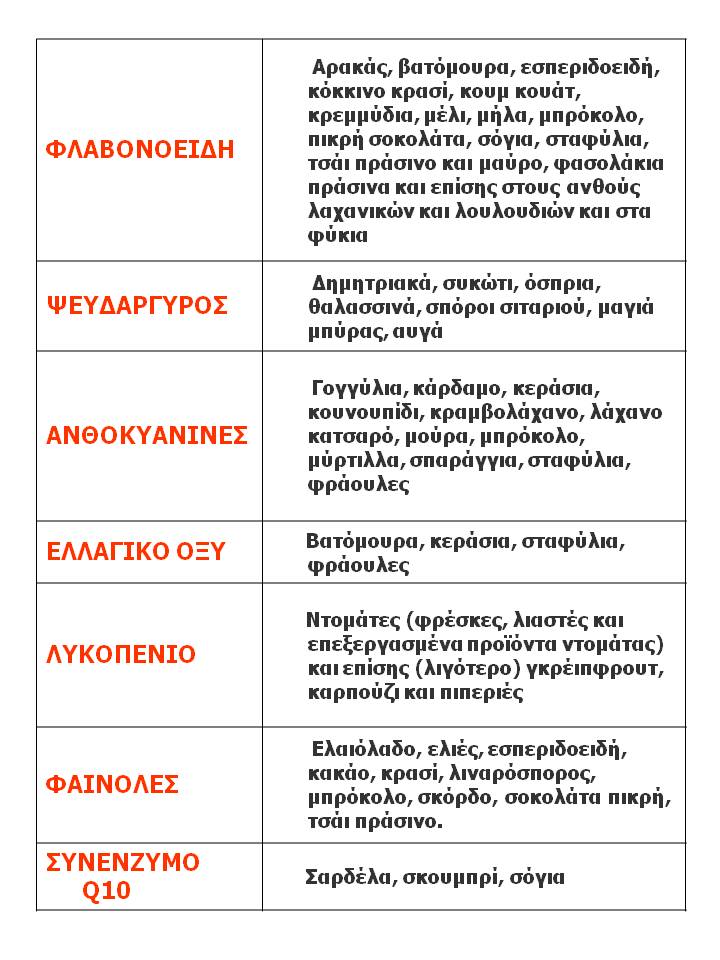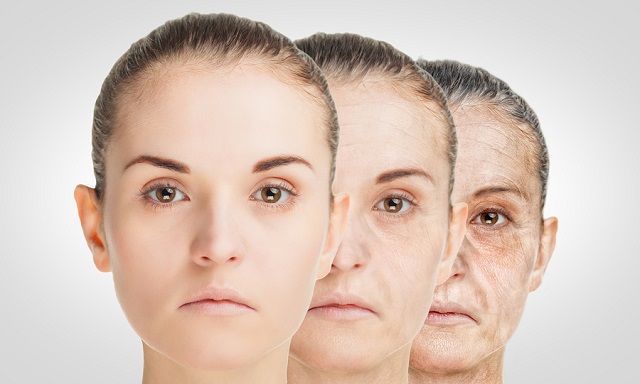
FREE RADICALS AND SKIN
- Premature aging of the skin.
- Premature wrinkle formation.
- Destruction of collagen and elastin.
- Loss of skin elasticity.
- Dehydration of the skin due to destruction of hyaluronic acid.
Free radicals
Obesity Rheumatic disorders
Arteriosclerosis Premature aging
Chronic polyarthritis Parkinson's disease
Inflammation Alzheimer's disease
Skin diseases Pancreatitis
Ischemia Nervous system
Cataracts Carcinogenesis
Free radical reactions with key cellular components
Lipids Peroxidation
Proteins Denaturation
DNA Mutations Splicing
Carbohydrates Modifications, Fragmentation
Factors contributing to the formation of free radicals.
Diabetes
Inflammation
Allergies
Infections
Smoking
Mental disorders
Diet and Environment
Chemotherapy Drugs
Oxidative stress
Solar radiation
Cancer
Cataract
Aging
Arteriosclerosis
Immune system
ΑΝΤΙΟΞΕΙΔΩΤΙΚΑ
• Προστατεύουν τις κτταρικές μεμβράνες, εξουδετερώνοντας τις ελεύθερες ρίζες οξυγόνου.
· They have anti-cancer activity, inactivate carcinogens that cause mutations in healthy cells and slow down the mechanisms of carcinogenesis.
· They keep the skin elastic and prevent premature aging by limiting the breakdown of collagen.
· They protect bones and joints, reducing swelling, inflammation and degenerative changes.
· They act as anti-allergens in a wide range of allergies.
· They protect other essential nutrients in the body and in some cases enhance their action (synergy).
· They increase vascular resistance, prevent oxidation of LDL-cholesterol and help control blood pressure levels.
· They improve mental mood and mental abilities.
· They protect the retina and enhance vision.




